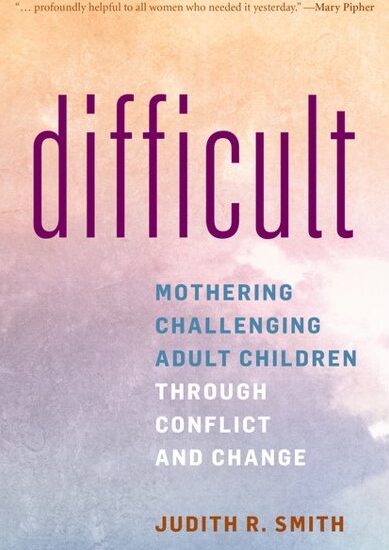
Nobody’s talking: New data shows that just 12% of providers talk to their heart patients about end of life, and a recent CDC study suggests only 50% of patients recall receiving education on their chronic illnesses. Photo @shelserkin.
A tweet caught my eye somewhere in the middle of Wednesday’s endless Twitter spin. NPR’s Health Blog, Shots headlined: “Doctors Hesitate To Ask Heart Patients About End-Of-Life Plans.” Huh. I was on my lunch break from working with cardiac patients, so I clicked in.
The blog post started with the familiar intro to congestive heart failure (CHF): a grim long-term prognosis, high incidence of hospital admissions, decreased quality of life, and likely death within five years of diagnosis. It ended with new research that suggests clinicians aren’t talking about these things with their CHF patients.
CHF is tricky. For a long time, patients feel fine; but as the disease progresses, their balance between thriving at home and succumbing to its complications in the hospital can come down to a packet of salt or a cup of water. It is the condition with the highest readmission rate, and requires exhaustive patient education about strict compliance with multiple medications and diet restrictions to keep complications at bay. Then, one day, all of the therapies stop working because the heart is just too worn out. That’s the day, the day that happens for all CHF patients, that doctors aren’t talking about, apparently.
The showcased data, yet to be published, was gathered from interviews with 100 MDs and NPs. Of the total, only a third said they were confident in even bringing up end-of-life care with their patients; 21% faulted patients’ readiness to chat, 11% of providers felt uncomfortable, and a very interesting 9% said they didn’t want to dash their patients’ sense of hope. In total, only 12% of the clinicians taking care of long-term CHF patients actually talked to them about end of life.
To be fair, practitioners aren’t reimbursed for these chats. They have to cram them into their pro-bono-goodwill budget. Maybe this is why a fraction of those in this study said they just didn’t have the time. But CHF is a disease so intimately tied to teaching patients to observe the progression of their symptoms – one pound of weight gained can mean a leap towards exacerbation – that it’s hard for me to understand how talks about prognosis and management can be separated.
It’s maleficent, really. When clinicians don’t discuss options and prognosis, patients are actually harmed by omission. Not talking fosters an unrealistic sense of cure, and patients miss out on amazing alternative options, like palliative care and hospice services. Yes, hospice is intended for patients with a six month prognosis, but the CMS-reimbursed program focuses on the management of comfort, not cure, and many patients actually improve and are discharged. Palliative care centers on maximizing symptom relief for chronic patients, like CHFers, in tandem with medical therapies. In a disease where the only real cure – heart transplant – isn’t offered to the majority of patients, therapies with the goal of maximizing quality of life are worth bringing up sooner rather than later.
One of the authors of this study, which hails from the Mayo Clinic, said that when providers were asked if they were talking about end of life issues with their patients, many of them said they wait until things get bad or until they have to do something new, like start a medication or talk about more aggressive therapy. Instead of cutting to the chase at the get-go, giving patients the true information about their prognosis right away, patients are faced with it when things look grim, and when it’s likely to be an awful surprise.
This is the point where I step in: the bedside, ICU nurse. I see CHF patients when their heart is so tired that it can’t pump blood to the body any longer, and it backs up into their lungs. Fluid-filled lungs don’t function very well, so the patients end up having to decided if they want the support of a ventilator while they gulp for air and foam at the mouth in a vicious attempt to stay alive. How is this best-case scenario? I don’t know about you, but I’d prefer a quiet, calm doctor’s office for the setting of this chat, not the point where my life is hanging in the balance with a bunch of strangers and fear.
I sent out a tweet to the ‘sphere after reading this write up. I asked the question: “I wonder how many nurses are starting these conversations?” Almost in an eerie response to my query, the Robert Wood Johnson Foundation’s Human Capital Blog tweeted out a blog post about a recent CDC study saying that nurses and PA’s are more frequently giving patients chronic disease management education than physicians. It’s true; I often talk to my patients about their illnesses in honest ways, bringing up options different from their aggressive – and often futile – hospital care.
While CHF wasn’t one of the chronic conditions noted, the CDC study’s results were pretty jarring: less than 50% of patients receive education on their chronic condition. The reality of all chronic conditions, especially CHF, is that they eventually become acute. If we’re not talking about end of life in the beginning, and only half of us are educating in the duration, what, exactly, do patients know about their diagnoses?
Thanks to Hollywood and the silver screen, the public has been long familiar with the stereotypical oncologist prognosis scene: “Mr. Jones, you’ve got six months left to live,” are now common words in our vernacular. But rarely, if ever, do I hear people telling me about diagnoses with other chronic conditions (yes, cancer is a chronic condition) like CHF, tied to time-left-to-live quantifications.
Why not? Recognizing the possibility for death, starting at diagnosis, seems to bring motivation and acceptance in patients. CHF patients should be traveling the globe, checking off their bucket lists, planning for a proactive and comfortable death just as much as cancer patients seem to be. Until we stop cowering behind our fears of introducing end of life care as a part of chronic disease management, patients will continue to be cheated of a fair chance to live the life they have left to its attainable maximum.
Maybe all of us conversation-starters should remember: Hope is only helpful when directed at reality. Get chatting.








